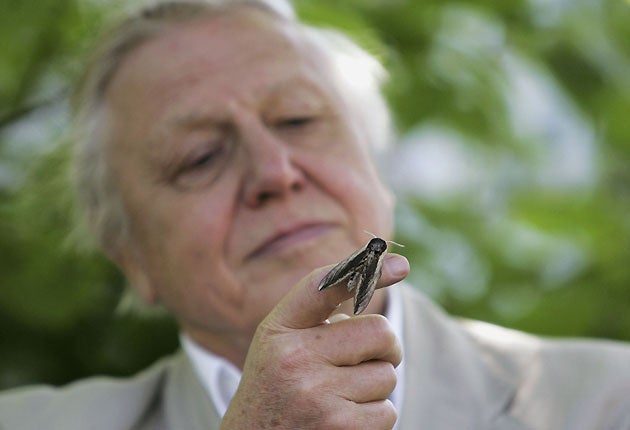Wildlife TV infringes animals' privacy, says academic

Wildlife documentaries deny animals their "right to privacy", an academic claimed today.
Producers of nature shows ignore privacy ethics when considering the mechanics of filming, argues Brett Mills, of the University of East Anglia.
BBC show Nature's Great Events - narrated by Sir David Attenborough - was scrutinised in his research.
Dr Mills said: "Human notions of privacy which rest on ideas of location or activity are ignored in terms of animals. It doesn't matter what an animal does, or where it does it, it will be deemed fair game for the documentary."
Dr Mills, who published his study in Continuum: Journal Of Media And Cultural Studies, said: "Perhaps there is an argument for some species, in some circumstances, not to be filmed. At the moment it seems that such arguments are never put forward.
"It might at first seem odd to claim that animals might have a right to privacy. Privacy, as it is commonly understood, is a culturally human concept.
"The key idea is to think about animals in terms of the public/private distinction. We can never really know if animals are giving consent, but they often do engage in forms of behaviour which suggest they'd rather not encounter humans, and we might want to think about equating this with a desire for privacy.
"When confronted with such 'secretive' behaviour, the response of the wildlife documentary is to read it as a challenge to be overcome with the technologies of television. The question constantly posed by wildlife documentaries is how animals should be filmed: they never ask whether animals should be filmed at all."
Distinctions between the public and private are enshrined within broadcasting regulations, with privacy placed within ethical categories of human rights, Dr Mills writes.
"While never made explicit, such regulations assume that such ethics are applicable to humans only," said Dr Mills.
"The ethical standards applying to wildlife programmes are predominately predicated on ensuring that 'audiences should never be deceived or misled by what they see or hear', that is the 'contract with the viewer' is prioritised over the rights of the animals."
Join our commenting forum
Join thought-provoking conversations, follow other Independent readers and see their replies
Comments
Bookmark popover
Removed from bookmarks